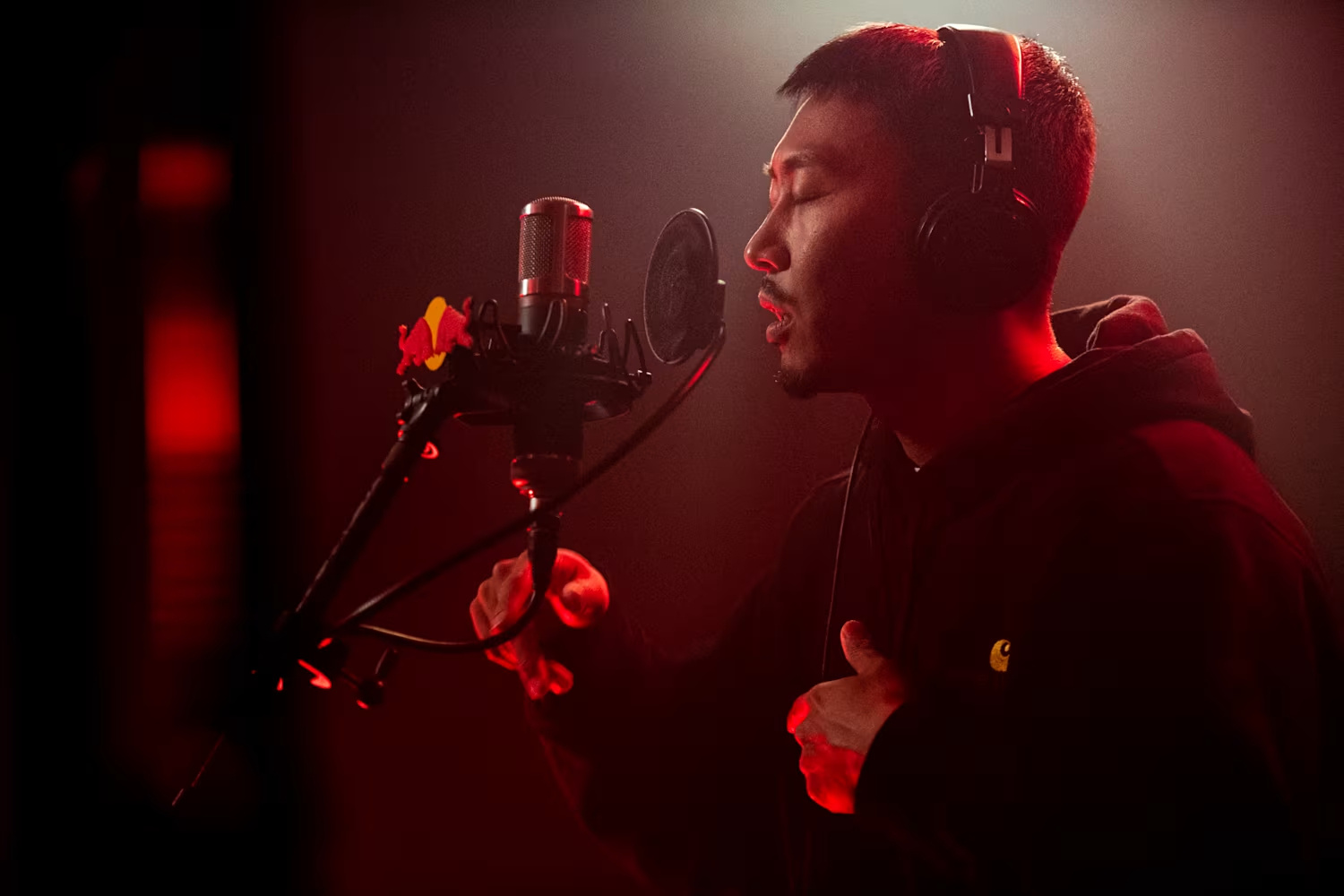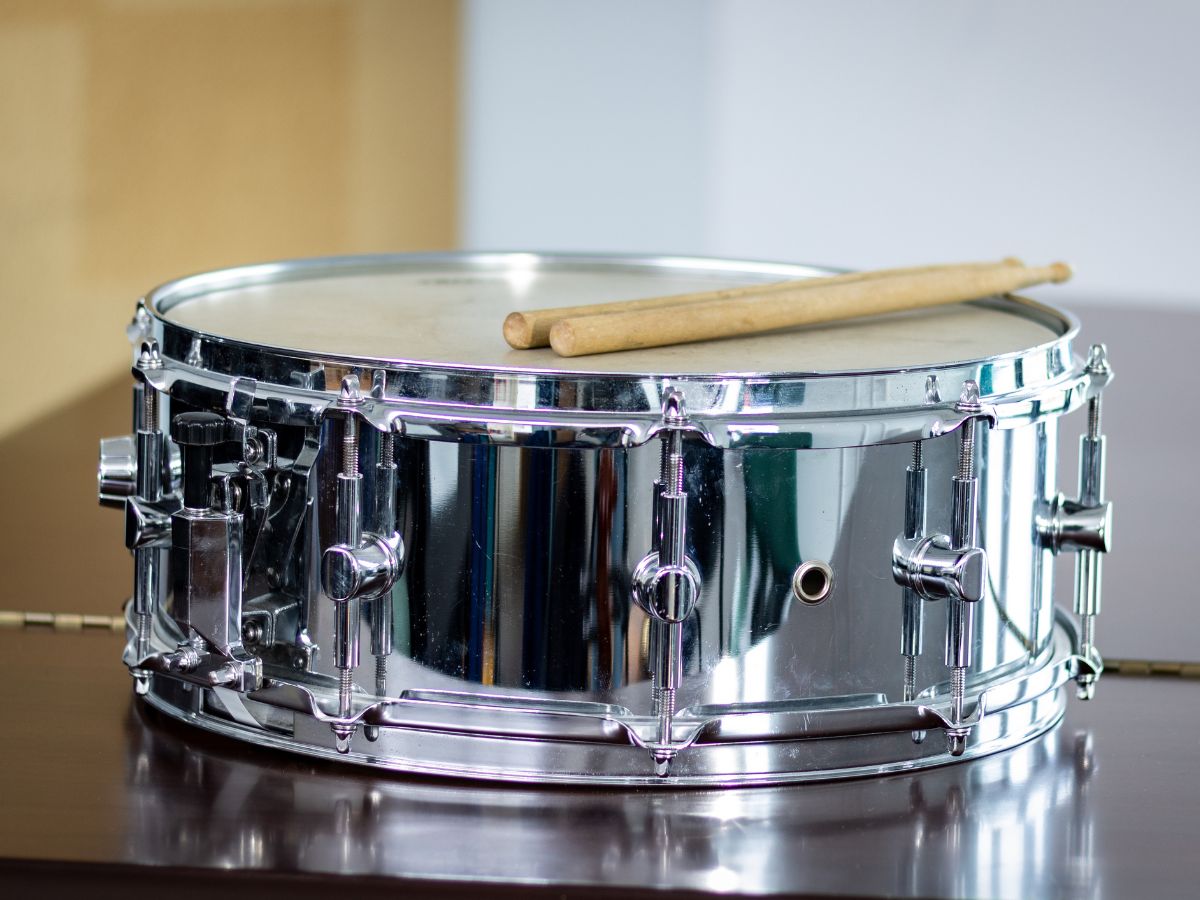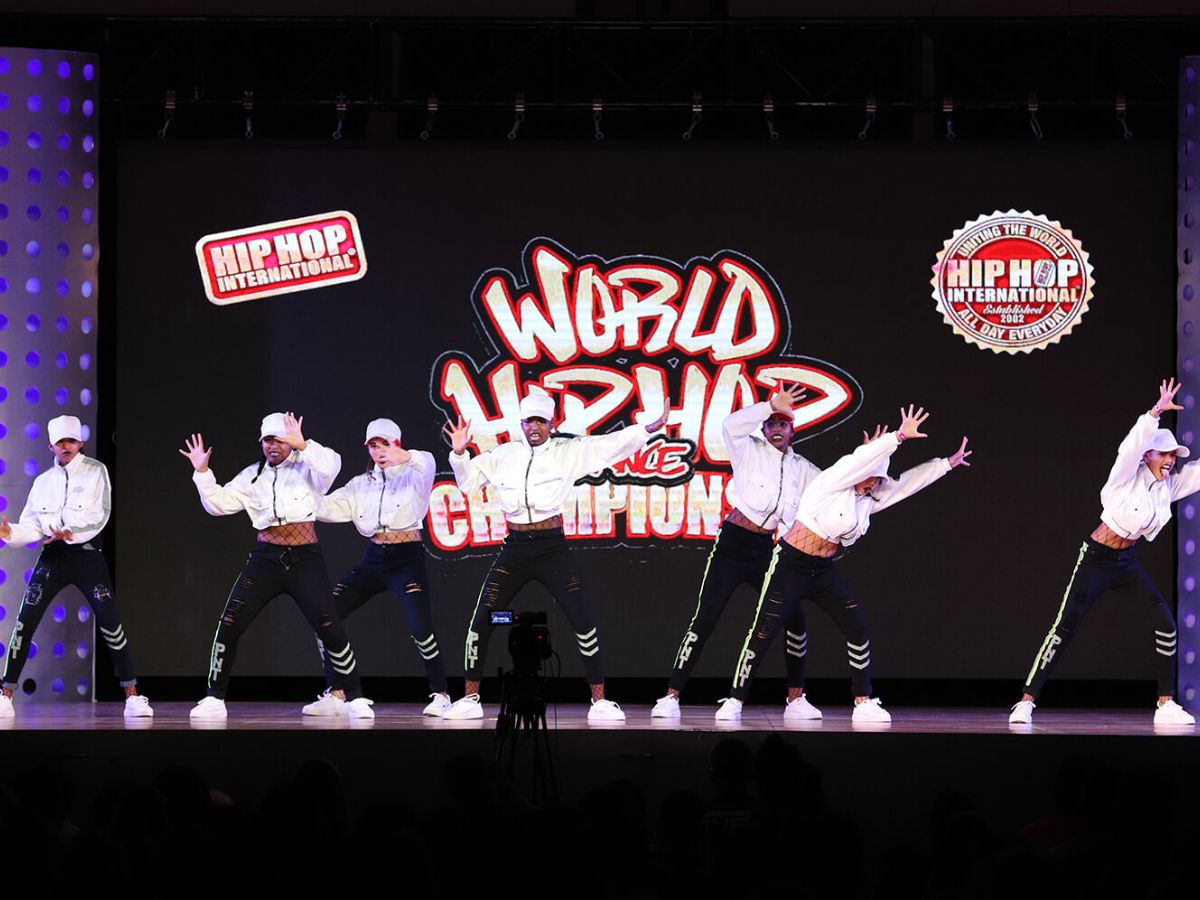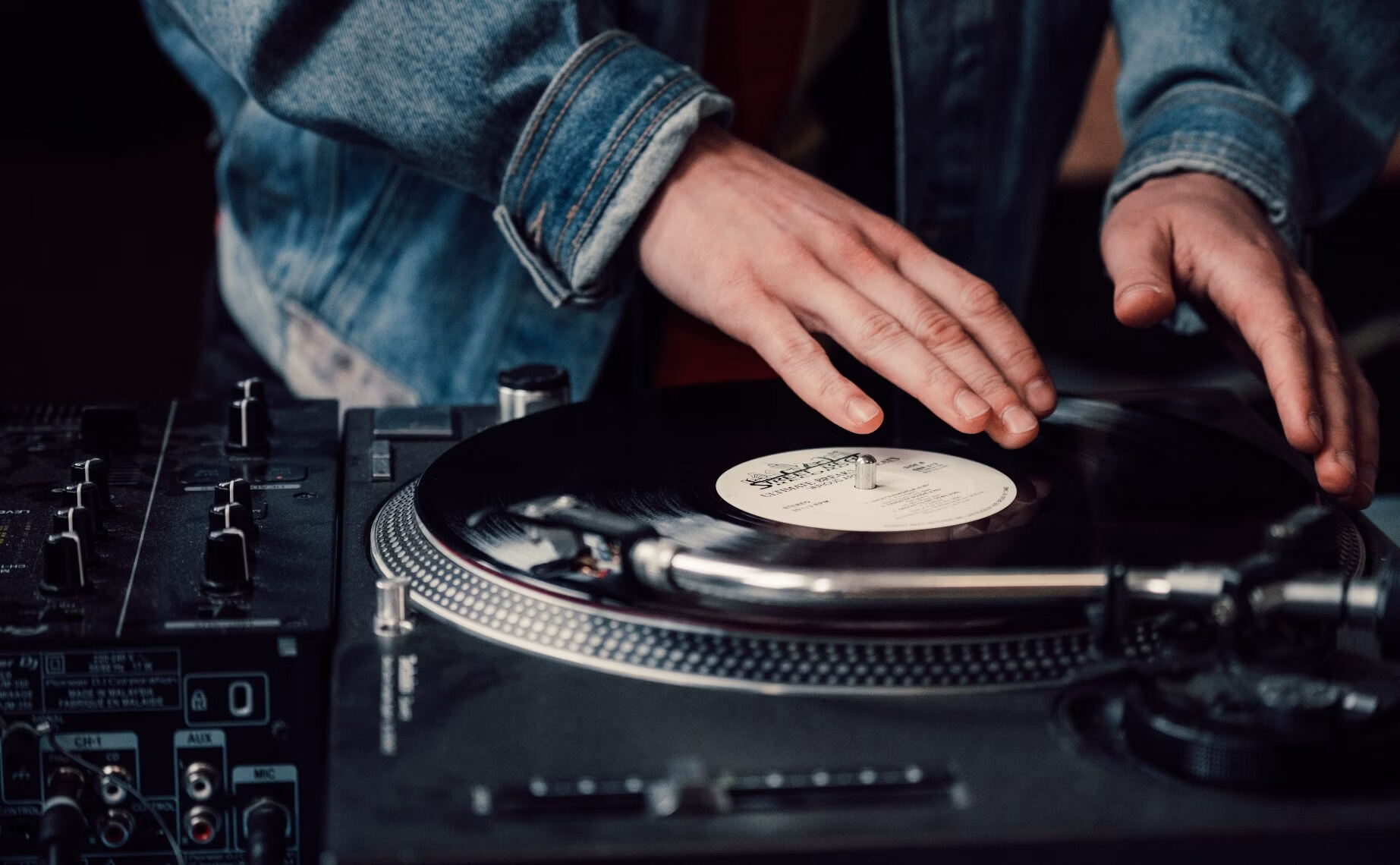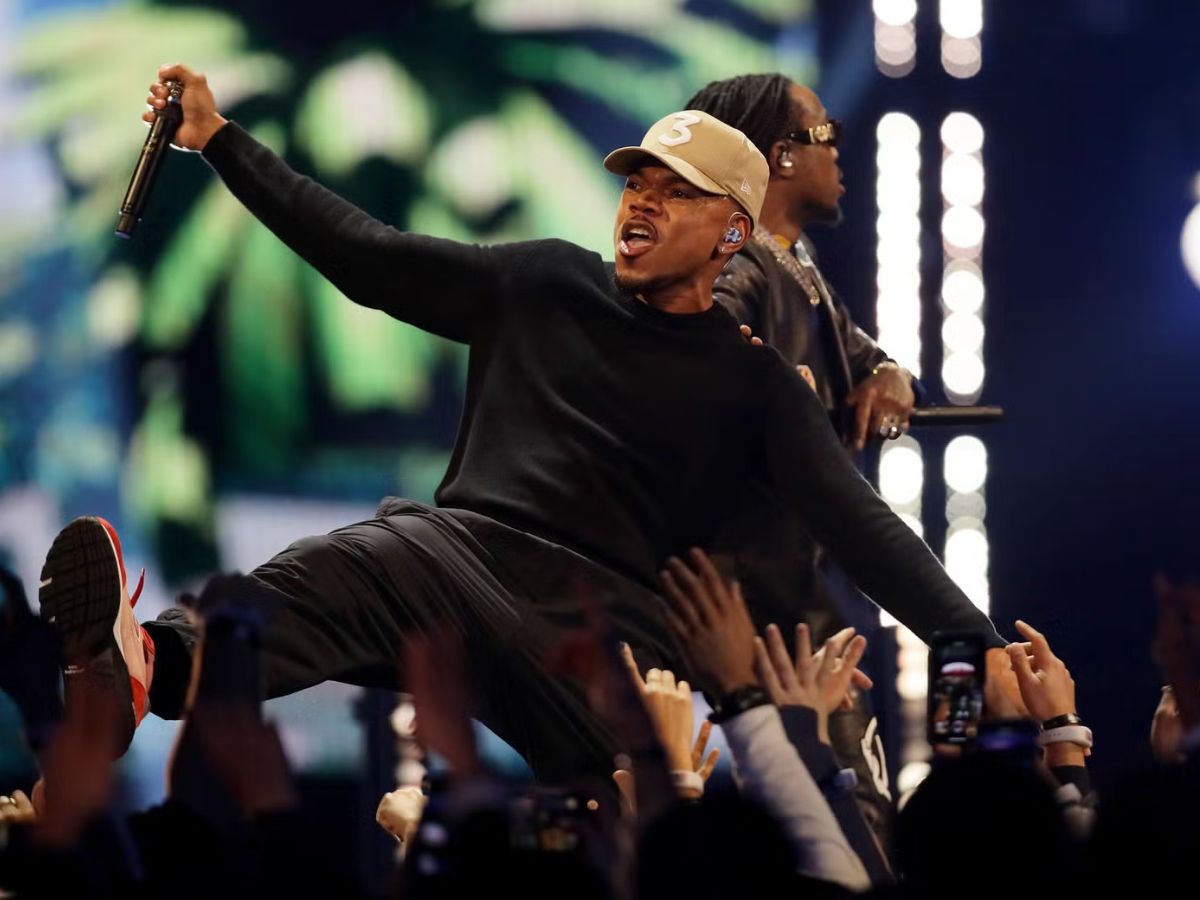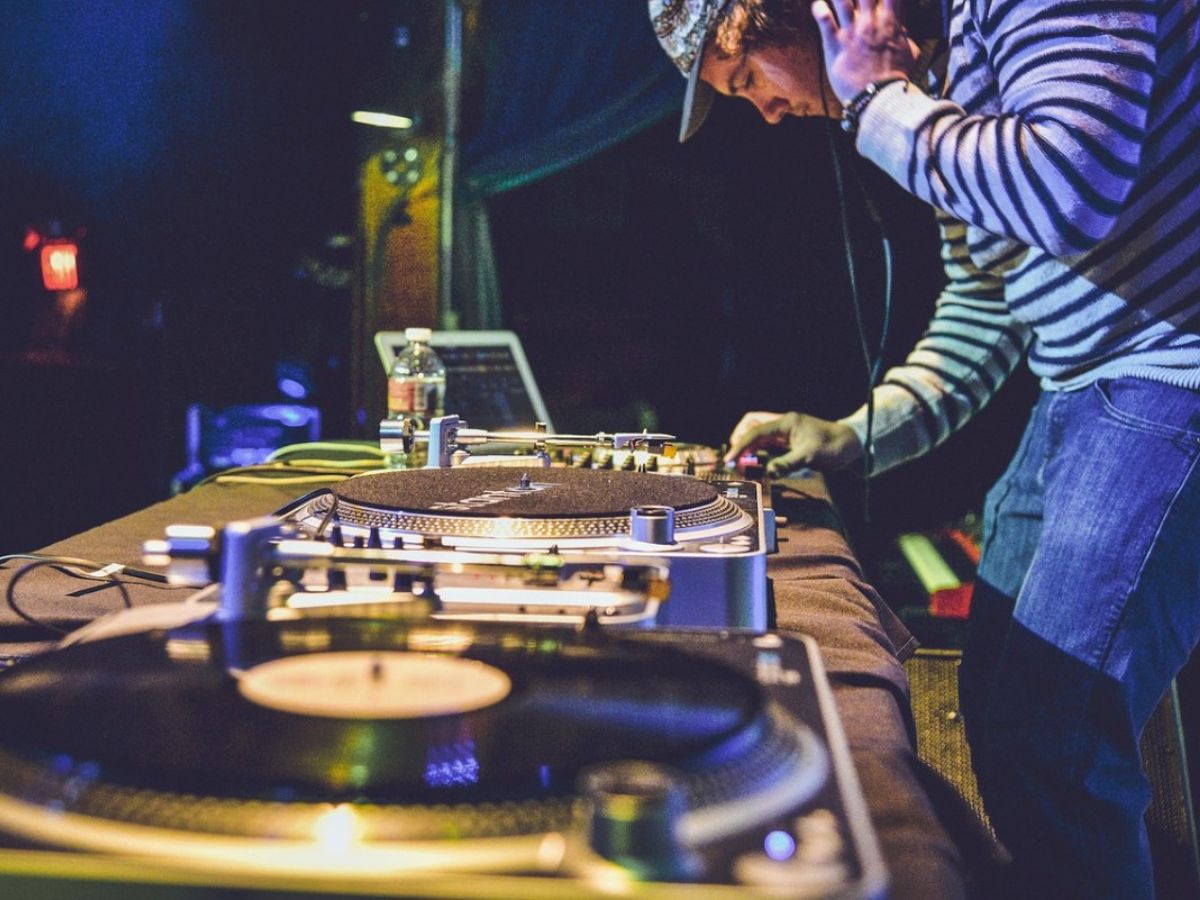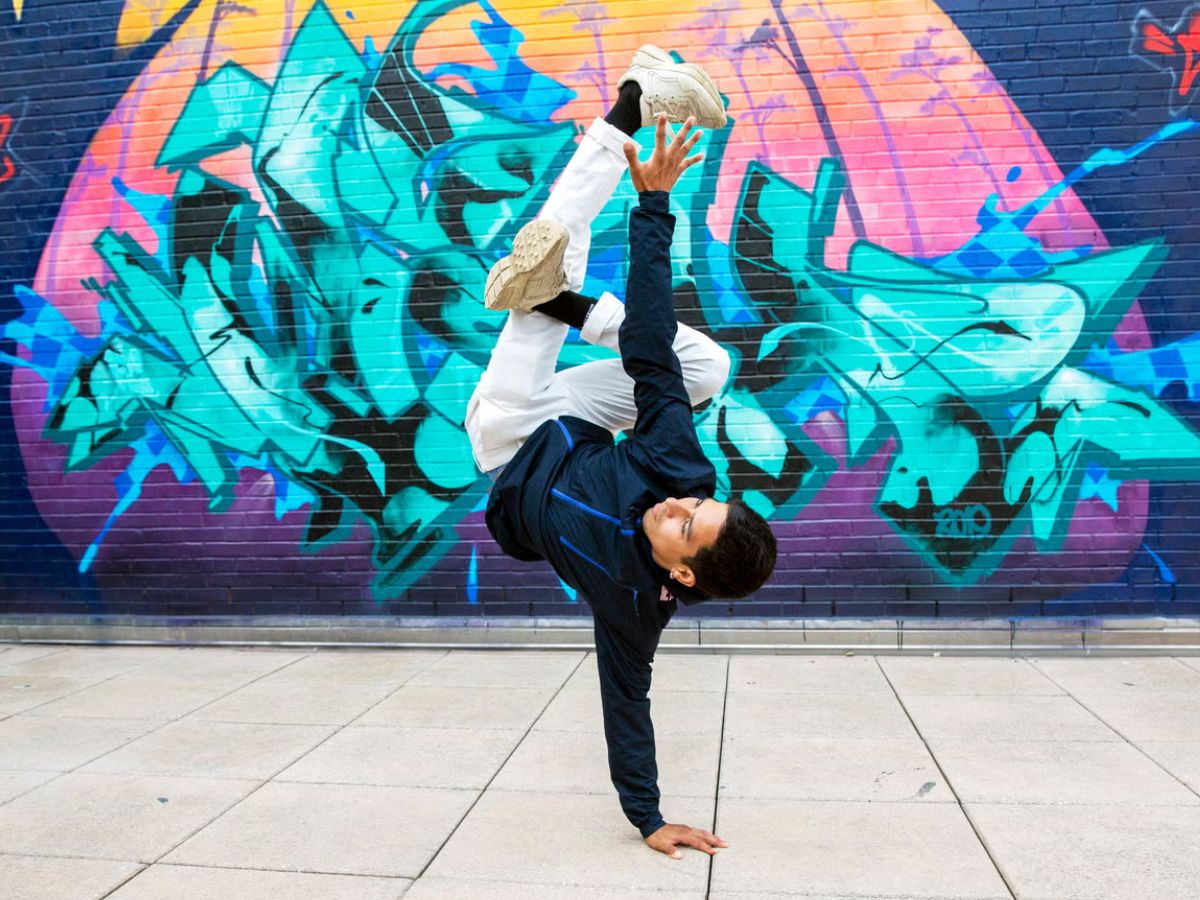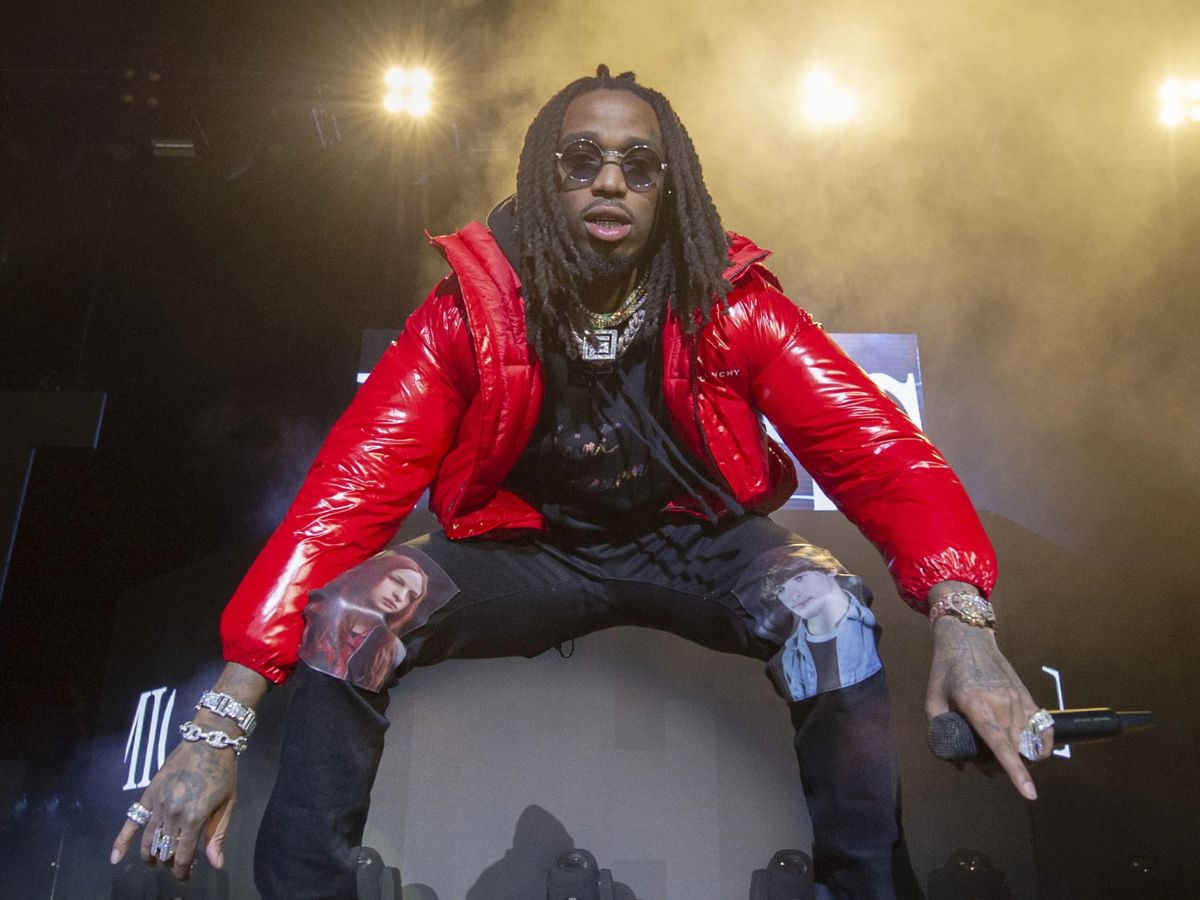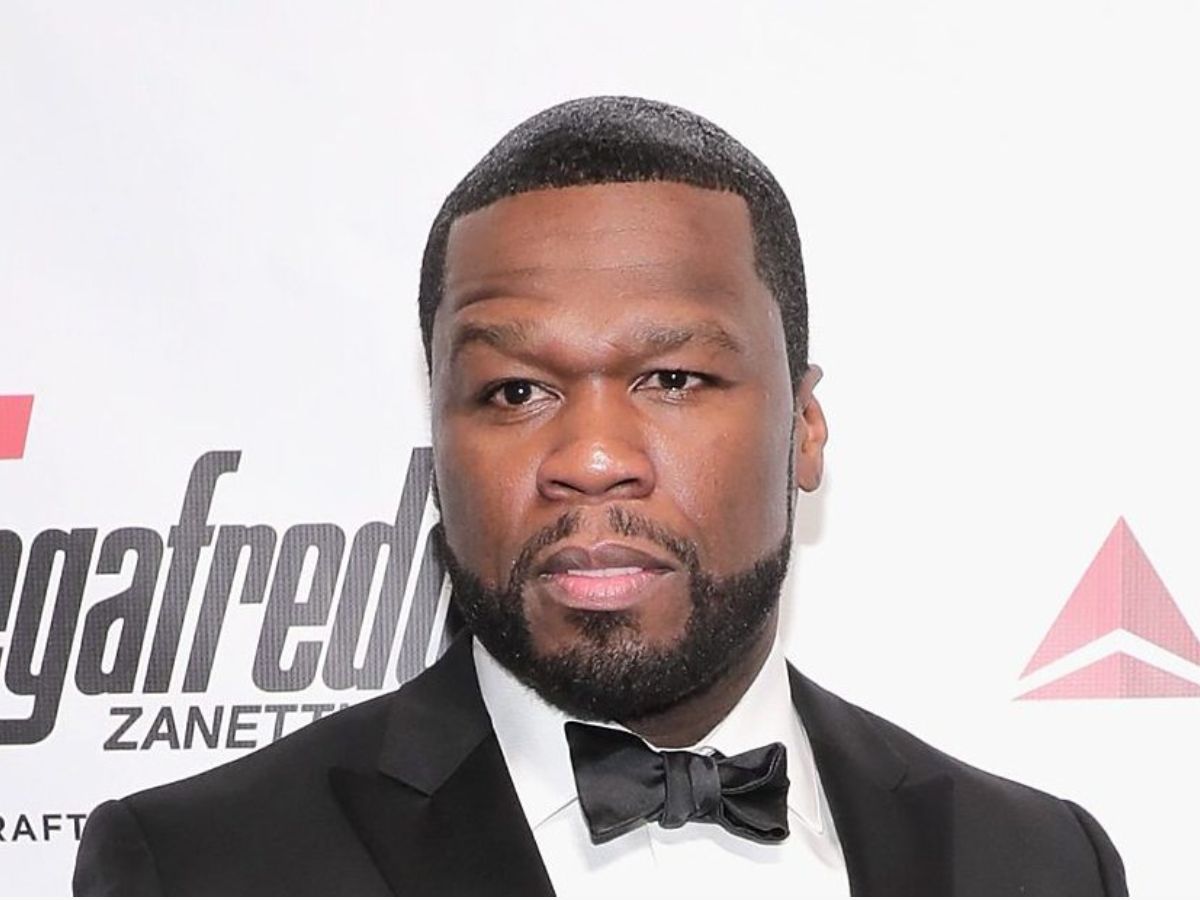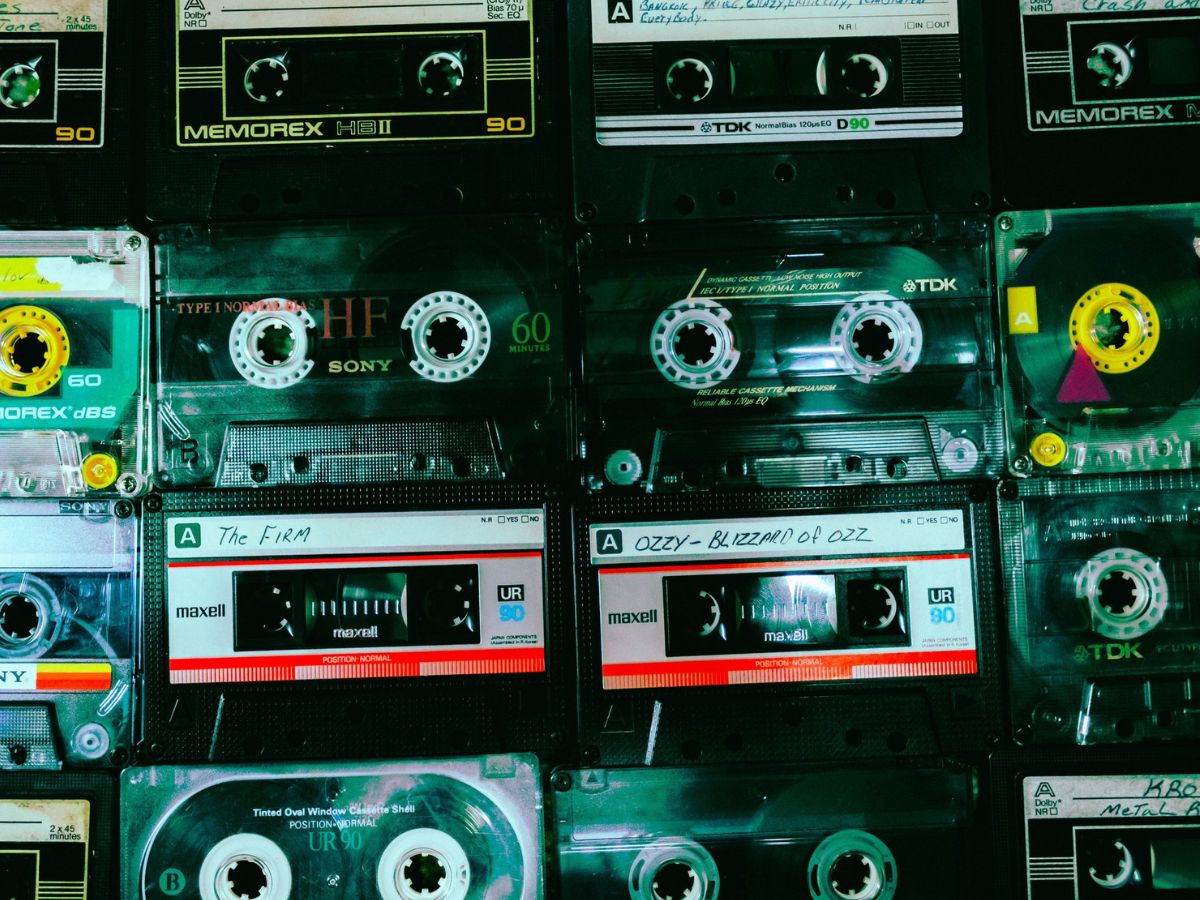

Hip Hop
What Is A Mix Tape In Hip Hop
Modified: March 4, 2024
Discover the art of mix tapes in Hip Hop and how it shaped the genre. Dive into the history, significance, and influence of this iconic element of Hip Hop culture.
(Many of the links in this article redirect to a specific reviewed product. Your purchase of these products through affiliate links helps to generate commission for AudioLover.com, at no extra cost. Learn more)
Table of Contents
Introduction
In the world of hip hop, mix tapes have played a significant role in the culture’s evolution and have become an essential medium for artists to showcase their talent. But what exactly is a mix tape in the context of hip hop? A mix tape is typically a compilation of songs, remixes, freestyles, and original tracks that are creatively mixed together by a DJ or an artist. These mix tapes are often released independently and distributed for free or sold on cassette tapes, CDs, or through digital platforms.
Mix tapes have a rich history in hip hop and have served as a platform for emerging artists to gain exposure, experiment with their sound, and establish a loyal fanbase. In the early days of hip hop, before the internet and streaming platforms became prolific, mix tapes were one of the primary ways for artists to share their music with the masses. They provided an alternative to the traditional music industry, allowing artists to bypass record labels and connect directly with their audience.
Throughout the years, mix tapes have evolved to not only showcase an artist’s music but also their versatility and creativity. They have become a medium for artists to experiment with different beats, collaborate with other artists, and express themselves freely without the constraints of commercial success.
As technology advanced and the internet became more accessible, mix tapes took on a new form. Artists began releasing digital mix tapes, utilizing platforms such as SoundCloud, DatPiff, and YouTube to reach a global audience. This allowed for greater visibility and easier distribution, as fans could now access mix tapes with a simple click of a button.
Furthermore, mix tapes have become a way for artists to generate buzz and build anticipation for their official studio albums. Releasing a mix tape before an album drop has become a common promotional strategy in the world of hip hop. It allows artists to gauge the response to their new material, connect with their fanbase, and attract industry attention.
In the next sections, we will delve deeper into the definition of a mix tape, explore its historical evolution, understand its role in hip hop culture, and analyze the importance of mix tapes in shaping the careers of hip hop artists.
Definition of a Mix Tape
In the realm of hip hop, a mix tape is a compilation of songs, often featuring a mix of original tracks, remixes, freestyles, and collaborative efforts. These compilations are skillfully curated and mixed together by DJs or artists to create a seamless flow of music. The term “mix tape” originated from the practice of DJs recording their mixes onto cassette tapes and distributing them to their audience.
Unlike commercial albums, mix tapes are typically released independently and are not bound by the same rules and regulations. Artists have the freedom to experiment with their sound, incorporate samples from other songs, and create tracks that may not fit the mainstream music industry’s standards. This creative flexibility has allowed mix tapes to become a breeding ground for innovation and artistic expression in hip hop.
It’s worth noting that the term “mix tape” has evolved over time. In the past, it referred to physical cassette tapes that were passed around and traded within communities. However, with the advent of digital technology, the term now encompasses various formats such as CDs, digital downloads, and streaming platforms.
Furthermore, mix tapes in hip hop can serve different purposes. They may be used as promotional tools to build anticipation for an artist’s upcoming album, as an outlet for artists to release music that might not make it onto their official projects, or simply as a means of showcasing their skills and creativity to a wider audience.
While the term “mix tape” implies a collection of songs mixed together, it’s important to note that not all mix tapes strictly follow this definition. Some mix tapes may consist of original tracks with no mixing involved, while others may feature a combination of studio-recorded songs and live performances.
Overall, mix tapes occupy a unique space in hip hop culture. They provide artists with a platform to experiment, connect with their audience on a deeper level, and express their creativity without the commercial pressures of mainstream music. In the next sections, we will explore the historical evolution of mix tapes in hip hop and delve into their role in shaping hip hop culture.
Historical Evolution of Mix Tapes in Hip Hop
Mix tapes have a rich history in hip hop, dating back to the 1970s and 1980s when the genre first emerged. During this time, DJs played a pivotal role in the development of hip hop culture, and mix tapes served as a tool for DJs to showcase their skills and introduce new music to their audience.
In the early days of hip hop, DJs would blend different genres of music, such as funk, soul, disco, and rock, to create unique soundscapes that energized and engaged the crowd. These live DJ sets were often recorded onto cassette tapes and distributed among fans, allowing the music to reach a wider audience beyond the walls of the local club or party.
As hip hop gained popularity and spread across neighborhoods and cities, DJs began to add their own creative touches to these mix tapes. They would seamlessly blend tracks, scratch vinyl records, and incorporate exclusive freestyles and shout-outs, making each mix tape a personalized and captivating experience for listeners.
The emergence of hip hop radio shows, such as DJ Mr. Magic’s “Rap Attack,” further propelled the mix tape culture. DJs would play exclusive remixes, unreleased tracks, and live performances on their shows, and fans would eagerly record these broadcasts onto cassette tapes to listen to later. These unofficial recordings became a form of mix tapes, capturing the essence of hip hop radio.
In the 1990s, with the rise of cassette tape duplicators and affordable recording equipment, anyone with access to a tape deck could create their own mix tapes. This democratization of mix tape production allowed aspiring DJs, artists, and music enthusiasts to share their own mixes, remixes, and original tracks with the world.
The mix tape culture continued to flourish in the 2000s, with artists like 50 Cent, Lil Wayne, and DJ Drama popularizing the concept of “street albums” or “mix tape albums.” These releases featured original tracks and high-profile collaborations, often rivaling the quality and impact of official studio albums. Mix tapes became a promotional tool for artists to build hype and establish a dedicated fanbase before the release of their commercial projects.
In recent years, the digital age has transformed the landscape of mix tapes in hip hop. Artists now have the ability to upload their mix tapes to online platforms, such as SoundCloud, DatPiff, and YouTube, making them readily accessible to a global audience. This ease of distribution has allowed up-and-coming artists to gain exposure and cultivate a following, directly impacting their careers.
The historical evolution of mix tapes in hip hop showcases both their importance in the cultural development of the genre and their adaptability to technological advancements. In the next section, we will explore the role of mix tapes in hip hop culture and their significance to artists’ careers.
Role of Mix Tapes in Hip Hop Culture
Mix tapes have played a vital role in shaping and preserving the essence of hip hop culture. They serve as a vehicle for artistic expression, a means of connecting with the audience, and a platform for showcasing diverse talents within the hip hop community.
One of the key roles of mix tapes in hip hop culture is to act as a form of self-expression for artists. It allows them to break free from the confines of commercial expectations and explore their creativity. Artists can experiment with different beats, lyrical styles, and storytelling techniques without the pressure of creating a hit single or conforming to mainstream trends.
Mix tapes also serve as a means for artists to connect with their audience on a deeper level. They offer a more intimate and unfiltered experience compared to official albums, giving artists the opportunity to share their personal stories, struggles, and aspirations. This authenticity resonates with fans, fostering a sense of connection and loyalty.
In addition, mix tapes have been instrumental in showcasing the diverse talents within the hip hop community. They provide a platform for up-and-coming artists, producers, and DJs to gain exposure and share their work. Mix tapes serve as an unconventional yet effective way to discover new talent, whether it’s a skilled lyricist, a talented beatsmith, or an innovative DJ.
The role of mix tapes extends beyond individual artists. Mix tapes have also been significant in representing local hip hop scenes and regional styles. From the early days of DJ battles to the emergence of regional mix tape series like DJ Screw’s “Screw Tapes” in Houston or DJ Clue’s “The Professional” series in New York, mix tapes have become a means of showcasing the unique sound and style of a particular city or region.
Furthermore, mix tapes have been essential in bringing together artists through featured collaborations. They allow artists to connect and collaborate with their peers, regardless of their label affiliations or commercial interests. This spirit of collaboration helps foster a sense of community within the hip hop culture, leading to the creation of memorable tracks and building lasting relationships among artists.
Lastly, mix tapes have formed an integral part of hip hop’s oral tradition. They serve as a documentation of the genre’s evolution, capturing the sounds, styles, and narratives of different eras. Mix tapes have contributed to the preservation and propagation of hip hop’s cultural heritage, allowing future generations to understand and appreciate the roots of the genre.
The role of mix tapes in hip hop culture is multi-faceted, serving as a medium of self-expression, a platform for emerging talent, a representation of regional styles, a catalyst for collaboration, and a documentation of hip hop’s history. In the next section, we will explore the importance of mix tapes in shaping the careers of hip hop artists.
Importance of Mix Tapes in Hip Hop Artists’ Careers
Mix tapes have played a crucial role in the careers of hip hop artists, serving as a launching pad for their success and providing a pathway to mainstream recognition. They offer artists a platform to showcase their skills, build a loyal fanbase, and establish their unique artistic identity.
One of the key importance of mix tapes in hip hop artists’ careers is the ability to generate buzz and create hype. Before the release of a major studio album, artists often drop mix tapes as a way to build anticipation and create a buzz around their upcoming project. By offering free or downloadable mix tapes, artists can attract attention, generate online buzz, and gain momentum in the music industry.
Furthermore, mix tapes allow artists to experiment with their sound and push artistic boundaries. They offer a level of creative freedom and flexibility that may not be present in commercial projects. Artists can take risks, showcase their versatility, and explore different styles without the pressure of conforming to mainstream expectations. This ability to experiment and showcase their talent helps artists stand out and attract the attention of music industry executives.
Mix tapes also play a crucial role in defining an artist’s unique sonic and visual aesthetics. Artists have the opportunity to curate their mix tapes, selecting beats, features, and samples that reflect their artistic vision. Mix tapes allow artists to cultivate a signature sound, establish their musical identity, and differentiate themselves from their peers, ultimately helping create a recognizable brand in the industry.
Moreover, mix tapes serve as a direct line of communication between artists and their fanbase. By sharing their mix tapes for free or at an affordable price, artists can connect with their audience on a personal level. These mix tapes provide fans with a deeper understanding of an artist’s journey, influences, and creative process, forging a stronger bond and generating a dedicated following.
For up-and-coming artists, mix tapes offer a way to gain exposure and showcase their talent to a wider audience. Releasing high-quality mix tapes that capture their unique style and lyrical prowess can provide a stepping stone to securing record deals, collaborations, and performance opportunities. In an industry where visibility is crucial, mix tapes offer a platform for artists to be discovered and noticed by industry professionals.
Additionally, mix tapes have become a valuable tool for artists to gauge audience response and test the market. They allow artists to receive real-time feedback, understand which songs resonate with listeners, and fine-tune their craft. This valuable feedback loop helps artists refine their sound, adapt to trends, and continuously improve their artistry.
Overall, mix tapes are instrumental in the success of hip hop artists. They serve as a promotional tool, a creative outlet, a means of direct communication with the audience, and a stepping stone to mainstream recognition. In the next section, we will explore the impact of digital technology on mix tapes in hip hop.
Impact of Digital Technology on Mix Tapes in Hip Hop
The advent of digital technology has significantly transformed the landscape of mix tapes in hip hop. It has revolutionized the way mix tapes are created, distributed, and consumed, opening up new opportunities for artists and making mix tapes more accessible to a global audience.
One of the most significant impacts of digital technology on mix tapes is the ease of creation. In the past, artists and DJs had to physically record their mixes onto cassette tapes or CDs, making the production process more time-consuming and resource-intensive. However, with the rise of digital audio workstations (DAWs) and software like Ableton Live or Serato DJ, artists can now create mix tapes more efficiently and with greater precision. These digital tools allow for seamless transitions, advanced editing capabilities, and the integration of various audio effects, enhancing the overall quality of mix tapes.
Digital technology has also revolutionized the distribution of mix tapes. In the past, physical copies of mix tapes were often limited in supply and distribution, making it challenging for fans to access them. However, with the rise of digital platforms like SoundCloud, DatPiff, and YouTube, artists can now upload their mix tapes for free or at a low cost, making them easily accessible to a global audience. This democratization of distribution has facilitated greater exposure for up-and-coming artists and has allowed fans to discover a plethora of new mix tapes with just a few clicks.
Furthermore, digital technology has altered the way mix tapes are consumed. With the advent of streaming platforms, listeners can now access an extensive catalog of mix tapes at any time and from any location. This has significantly broadened the reach of mix tapes, reaching a global audience and breaking down geographical barriers. Whether it’s through online platforms or social media, fans can now discover, stream, and share mix tapes with their friends and followers instantaneously.
Another significant impact of digital technology on mix tapes is the rise of viral marketing and social media promotion. Artists can now leverage social media platforms to promote their mix tapes, build a following, and generate buzz. Platforms like Instagram, Twitter, and TikTok provide artists with the opportunity to engage with fans, share snippets of their mix tapes, and create viral challenges, ultimately increasing their visibility and exposure to a broader audience.
Additionally, the digital era has seen a shift in the format of mix tapes. While physical copies of mix tapes still exist, the majority are now released in digital formats such as MP3 or streaming playlists. This shift has not only reduced costs for artists but has also allowed for the inclusion of a larger number of tracks, extended playing times, and easy updates or revisions to mix tapes.
In summary, digital technology has had a profound impact on the world of mix tapes in hip hop. It has simplified the creation process, expanded distribution channels, broadened the reach of mix tapes, and facilitated new forms of marketing and promotion. As technology continues to evolve, we can expect mix tapes to adapt and embrace emerging trends, further shaping the future of hip hop culture.
Mix Tape DJ Culture and Influential DJs
Mix tape DJ culture has played a significant role in the development and evolution of hip hop. DJs have been instrumental in curating and presenting mix tapes, showcasing their skills, and elevating the art of DJing to new heights. Through their creativity and innovation, they have shaped the sound and direction of hip hop, leaving a lasting impact on the genre.
One of the most influential DJs in mix tape culture is DJ Kool Herc, widely regarded as one of the pioneers of hip hop. Herc’s use of two turntables and the “breakbeat” technique laid the foundation for DJing in hip hop. His legendary parties in the Bronx, where he seamlessly mixed funk, soul, and disco records, created an electrifying atmosphere that became the blueprint for future DJs.
Another iconic figure in mix tape DJ culture is DJ Clue. Known for his “Clue tapes” and the critically acclaimed “The Professional” mix tape series, DJ Clue gained prominence in the 1990s and early 2000s. He became renowned for his exclusive remixes, unreleased tracks, and high-profile collaborations, showcasing his ability to connect with both established and up-and-coming artists.
DJ Drama is another influential DJ who has made a significant impact on mix tape culture. He co-founded the highly influential mix tape collective, the Aphilliates, and released several notable mix tapes, including the “Gangsta Grillz” series. DJ Drama’s mix tapes are characterized by their cinematic intros, street-oriented content, and collaborations with some of the biggest names in hip hop.
DJ Premier, one-half of the legendary production duo Gang Starr, is revered for his sample-based production and impeccable scratching skills. Although primarily known for his production work, DJ Premier has also released mix tapes, showcasing his unparalleled ability to blend different genres and create a distinct sound that has influenced countless producers and DJs.
The influence of mix tape DJs extends beyond individual artists. DJ Screw, a key figure in the Houston hip hop scene, introduced the world to the unique “chopped and screwed” style through his mix tapes. By slowing down and manipulating tracks, DJ Screw created a hypnotic and melodic sound that became synonymous with Houston hip hop and an inspiration for future generations of artists and DJs.
In recent years, DJs like DJ Mustard, DJ Khaled, and DJ Envy have continued to elevate the mix tape culture. These DJs are known for their distinctive styles, blending different genres, and featuring high-profile collaborations on their mix tapes. They have utilized mix tapes as a platform to showcase their DJ skills, promote their brand, and introduce emerging artists to a wider audience.
Overall, mix tape DJ culture has had a profound impact on the development of hip hop. These influential DJs have pushed boundaries, curated exceptional mixes, and helped shape the sound and direction of the genre. Their contributions to mix tape culture have solidified their status as legends and continue to inspire aspiring DJs and artists in the hip hop community.
Conclusion
Mix tapes have played a crucial and transformative role in the world of hip hop. From their early days as cassette tapes circulated within local communities to the digital era where they are easily accessible on streaming platforms, mix tapes have been a fundamental medium for artists to express their creativity, connect with their audience, and advance their careers.
The definition of a mix tape has evolved over time, encompassing a compilation of songs, remixes, and original tracks mixed together by DJs or artists. Mix tapes have allowed artists to break free from the constraints of the music industry, experiment with their sound, and showcase their versatility and artistic vision.
Throughout the history of mix tapes in hip hop, they have been instrumental in shaping the culture. Mix tapes offer a platform for emerging talent to gain exposure, provide a means for artists to connect with their audience on a deeper level, and serve as a representation of local hip hop scenes and regional styles. Mix tapes have also fostered a sense of community and collaboration among artists, pushing the boundaries of creativity and innovation.
Importantly, mix tapes have played a vital role in the careers of hip hop artists. They serve as a promotional tool, generating buzz and anticipation for official releases. Mix tapes allow artists to experiment with their sound and establish their unique artistic identity. They provide a direct line of communication with fans, building a loyal following and nurturing a dedicated fanbase. Moreover, mix tapes have served as a stepping stone for up-and-coming artists, helping them gain recognition, secure record deals, and pave the way for mainstream success.
Digital technology has had a profound impact on mix tapes in hip hop, simplifying the creation process, expanding distribution channels, and changing the way mix tapes are consumed. Online platforms and social media have been instrumental in promoting mix tapes and connecting artists with their audience. The digital age has also brought a shift in the format of mix tapes, with digital downloads and streaming playlists becoming the norm.
Lastly, the mix tape DJ culture and influential DJs have shaped the sound and direction of hip hop. DJ pioneers like DJ Kool Herc and DJ Clue, as well as contemporary DJs like DJ Drama and DJ Mustard, have elevated mix tapes to an art form. Their creativity, skills, and contributions have left an indelible mark on the mix tape culture and continue to inspire future generations.
In conclusion, mix tapes have been a driving force in the evolution of hip hop. They have provided a platform for artists to express their creativity, connect with their audience, and advance their careers. Mix tapes have shaped the culture, with their influence felt in the music, community, and artistic identity of hip hop. As technology continues to progress, we can expect mix tapes to evolve further, continuing to be a vital part of hip hop’s ever-changing landscape.

